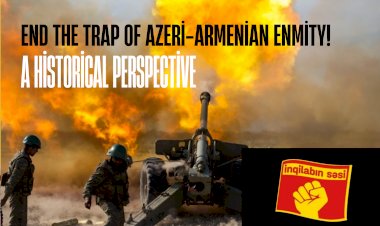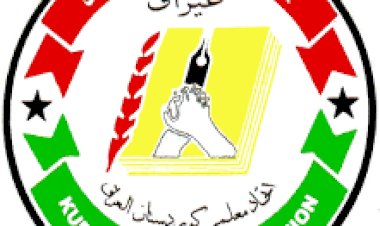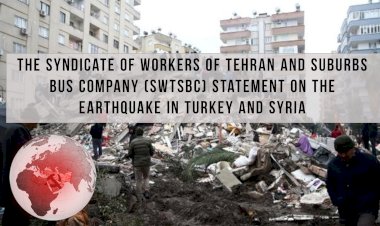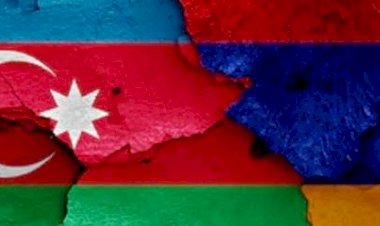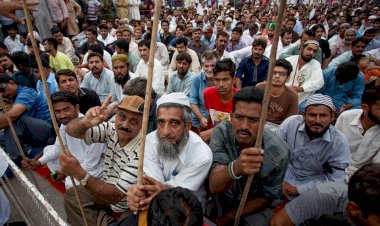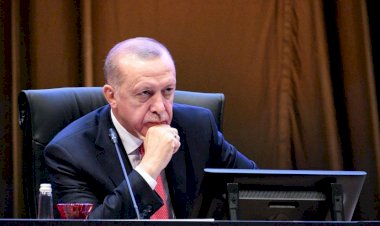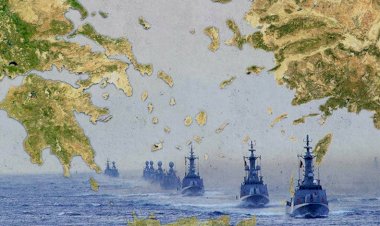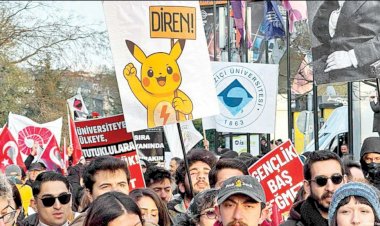Escalating Military Balances in Gaza and Lebanon – V. U. Arslan
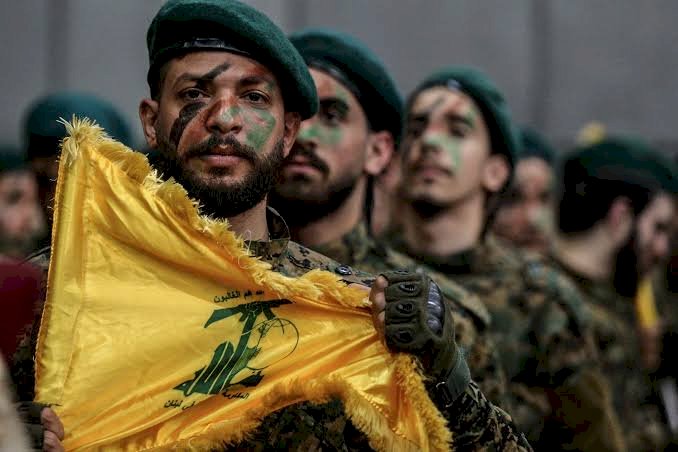
Israel, which has made significant progress against the Palestinian resistance in Gaza, needs to continue the war (massacre) for months to achieve its goals. Gaza might continue to be drenched in blood for another year. On the other hand, solidarity actions with Palestine, particularly resonating in Western metropolises, are pressuring Israel and its supporter, the US, to reach a ceasefire. Hezbollah and the Houthis, who are sending missiles and drones to Israel, are also trying to increase internal pressure on Israeli public opinion, pushing Netanyahu toward a ceasefire. Netanyahu, however, is attempting to involve the US in the war and reduce the pressure on himself by extending the conflict to Lebanon and possibly Iran.
We can talk about Netanyahu’s personal motivations, who sees continuing and even escalating the war as the only way to hold his far-right coalition together, thus staying in power and postponing the day when he will have to face corruption charges against him. While this is true, the issue cannot be reduced to Netanyahu’s personal troubles alone.
Israel Won't Be Able to Claim Success Unless Palestinian Resistance Organizations Are Destroyed
The escalation of the conflict in Lebanon is directly related to the course of the war in Gaza. Israel will not be victorious without completely destroying the main resistance organization, Hamas. In other words, even if a large portion of Hamas's forces are destroyed, when Israel withdraws, Hamas could regroup with its remaining forces and re-establish its influence in Gaza. This would signify a victory for Hamas and a defeat for Israel. This is why Netanyahu never wants to sign a ceasefire. Halting the attacks without destroying Hamas and other resistance groups in Gaza is not on their agenda. In this case, the Palestinian groups will become increasingly exhausted, and their capacity to resist will be depleted. This is where Hezbollah comes into play. Instead of watching the Palestinian factions wither away, Hezbollah is launching missiles into Israel, forcing Israeli citizens to leave northern Israel, thereby increasing domestic pressure on Netanyahu for a ceasefire. So far, 80,000 Israeli settlers have been forced to leave their homes. Israel is trying to be as deterrent as possible to break Hezbollah’s pressure. Meanwhile, the Houthis are also trying to stop the operation in Gaza with their attacks on Israel. A missile fired by the Houthis reached central Israel for the first time last week. Israel, which launched heavy retaliatory strikes on Yemen's Hudaydah Port in July, is expected to carry out new retaliatory attacks following this latest assault.
The Importance of International Support for Palestine
This is where the importance of international support for Palestine becomes evident. The rising protests against Israel, especially in the US, Canada, and Europe, are cornering Netanyahu. It is impossible for Israel to continue such a large-scale massacre for this long without the approval of the US. This is why the rising protests in the US, reminiscent of those during the Vietnam War, are so decisive in putting pressure on US imperialism. Indeed, it is due to this pressure that the Biden-Harris administration appears to be objecting to Israel, even if it is somewhat disingenuous. On the other hand, the European ruling class is extremely harsh toward anti-Israel protests, as they too are aware of the power of these protests.
The Situation of Hamas in Gaza
The Palestinian resistance organizations, who are resisting a much stronger enemy and trying to survive in the process, are facing a difficult task. Though fighting a proper war via underground tunnels is their greatest advantage, losses will inevitably increase, and military capacity will decline over time in a prolonged war. In fact, reports (ISW - Institute for the Study of War) indicate that the number and nature of counter attacks carried out by Hamas in Gaza have significantly decreased in recent months.
In addition to manpower losses, Israel has seized the Philadelphia Corridor, a vital supply route for Hamas along Gaza’s border with Egypt. As Israeli operations drag on, it can be assumed that the Palestinian factions’ weapons production capacity will also come under strain. Similarly, it is conceivable that the missile and anti-tank weapon stockpiles, which are the main offensive weapons of Hamas and other organizations, will decrease over time. Furthermore, the Israeli army will continue to shrink the network of tunnels beneath Gaza in the coming months. Thus, time is working against Hamas and other resistance groups. As operations drag on, Hamas’s ability to maintain a functioning command structure, communication system, and the ability to train, arm, and redeploy forces will continue to suffer.
What Does Israel Want?
Let’s assume Israel completely crushes the Palestinian resistance organizations. In that case, the Israeli army would have to hand over Gaza, as it cannot deport the Palestinian population in Gaza to Egypt. But Israel will want to control which power takes over Gaza. Even though Israel may appear complacent, it does not want the PLO leadership to gain control in Gaza. If the PLO leadership, which already controls the West Bank, gains power in Gaza, it could lead to the establishment of a Palestinian state, even a small one, which is something the Zionist regime does not want at all. In this sense, the idea of an international "peacekeeping" force consisting of soldiers from collaborationist Arab regimes might come up. It is even possible that US soldiers could join this force. This force could be tasked with preventing Hamas or other resistance groups from regrouping in Gaza. Saudi Arabia, the UAE, Qatar, Egypt, and Jordan could be "persuaded" by the US to participate. However, these plans are diplomatically quite complicated, expensive, and difficult to implement. Nonetheless, such a structure would be essential to prevent the production of military ammunition and weapons from entering Gaza via the Egyptian border, thus keeping the Palestinian resistance at most in the form of small guerrilla groups. Even if the Israeli army succeeds in politically and militarily destroying Hamas, it will fail to achieve its goals if it cannot establish a new structure that it prefers in Gaza.
What Can Iran and Hezbollah Do in This Situation?
Iran does not want the war to spill over into its territory; this much is clear. War-weary Syria is also reluctantly avoiding direct confrontation with Israel. The force expected to carry the war forward is essentially Hezbollah. Hezbollah also bears responsibility for all of Lebanon. Recently, Hezbollah has suffered unexpected heavy blows. How will it respond to these attacks? Following Israel's shocking pager and radio attacks, it wasted no time and assassinated key Hezbollah leaders in one of the bloodiest airstrikes on Beirut in recent years. While Hezbollah has good reasons to continue avoiding an all-out war, it is clear that Israel will increase the pressure, though these latest blows will have only temporary effects on Hezbollah’s military capabilities. In the event of an Israeli invasion of Lebanon against Hezbollah, other Shiite forces in Yemen, Iraq, and Syria will likely support Hezbollah. Hezbollah is better equipped than during the 2006 war. The organization, a game-changer in the Syrian civil war, has increased its combat experience and now has allies across the region that it did not have in 2006. But the Israeli army has also greatly expanded its capabilities and gained experience in fighting a well-hidden enemy through the war in Gaza. Nasrallah has said that Hezbollah will respond to Israel at a time of their choosing. Remember, Iran said the same thing to Israel as well. This could mean that Hezbollah, like Iran, will refrain from pressing the button for immediate and decisive war. So will Israel stop? The Israeli army, which thinks it has overcome the intense and difficult phase of the war in Gaza, will use every opportunity to deal blows to Hezbollah.



